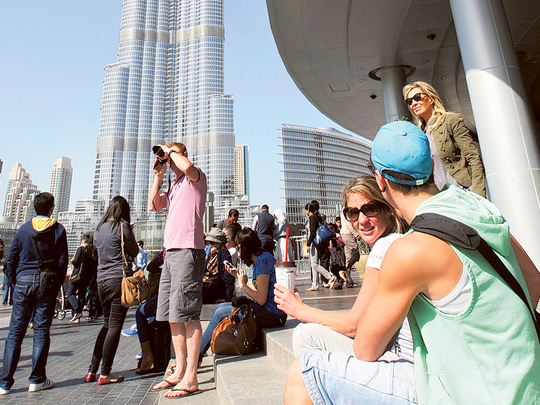
Dubai: A weaker euro near its lowest level in twelve years could have a dampening impact on inflation in the UAE as food items imported from the Eurozone get cheaper, leaving more disposable income in the hands of consumers, analysts said.
The euro has declined more than 26 per cent since March 2014, making all food and other items imported from Europe cheaper for consumers.
“This could leave more money in the hands of UAE consumers due to a fall prices of household items, and machinery,” Jaap Meijer, managing director with Arqaam Capital told Gulf News.
Food inflation contributes to a large weightage in the UAE inflation index, which has been rising mainly due to housing expenditure and miscellaneous goods and services, and could be offset by falling prices of fruits, vegetables, and others items that come from Europe.
“Mostly it should be companies in the UAE that import from the Eurozone that will benefit from euro weakness as the prices of products from Europe should become more competitively priced,” Tim Fox, Head of Research & Chief Economist, Emirates NBD.
For example, luxury products from Europe being sold in the UAE should become cheaper. Comparatively speaking exporters from the UAE, especially to Europe, may struggle given the strength of the dollar, Fox said.
Since UAE is a trading economy, there could be a positive impact on firms dealing with European companies.
Further slide
Euro may come to parity to the dollar in a few weeks and months, said Sudhesh Giriyan, chief operating officer of Xpress Money.
Fox from Emirates NBD also agreed.
“We are expecting the euro to fall to parity in the coming 3 to 6 months as monetary policies between the US and the Eurozone diverge,” Fox said.
“The fact that euro has almost reached parity before the US has raised interest rates, and only as the ECB has just begun QE [quantitative easing], suggests that the risks are that it will fall below parity over the coming year, especially if concerns over a possible break-up of the euro intensifies,” he added.
Reverse carry trade
Due to a trillion dollar quantitative easing announced by the European Central Bank, cheap credit to companies in the Eurozone could boost expenditure, revive investments and thereby boost the GDP, fuelling reverse carry trade in the economy by investors in search of yields.
Ideally the investments should had flown out of Eurozone in search of yields, but fund managers overseas are investing in European stock markets for better yields.
For example, The German benchmark DAX Index touched the keenly-watched 12,000 mark last week led by gains in K+S AG, Siemens AG and Bayerische Motoren Werke AG. The equity measure has rallied 22 per cent this year, buoyed by the European Central Bank’s commitment to quantitative easing and better-than-forecast economic data.
“For Middle East based investors, we believe that European equities offer excellent investment opportunities, mainly because the ECB is intent on reflating the economy through its programme of quantitative easing,” Vic Malik, Head of Global Investments and Solutions for Barclays Wealth and Investment Management said.
European companies enjoy a low interest rate environment, which enables them to refinance their obligations. A weaker euro has been helpful in making European exports attractive, and a lower oil price is expected to benefit the consumer.
“The supportive macro factors will act as a tail wind and we expect European equities to continue to perform for the balance of this year. Eurostoxx has gained around 15 per cent this year and our strategists believe that European equities are expected to outperform US equities,” Malik said.












